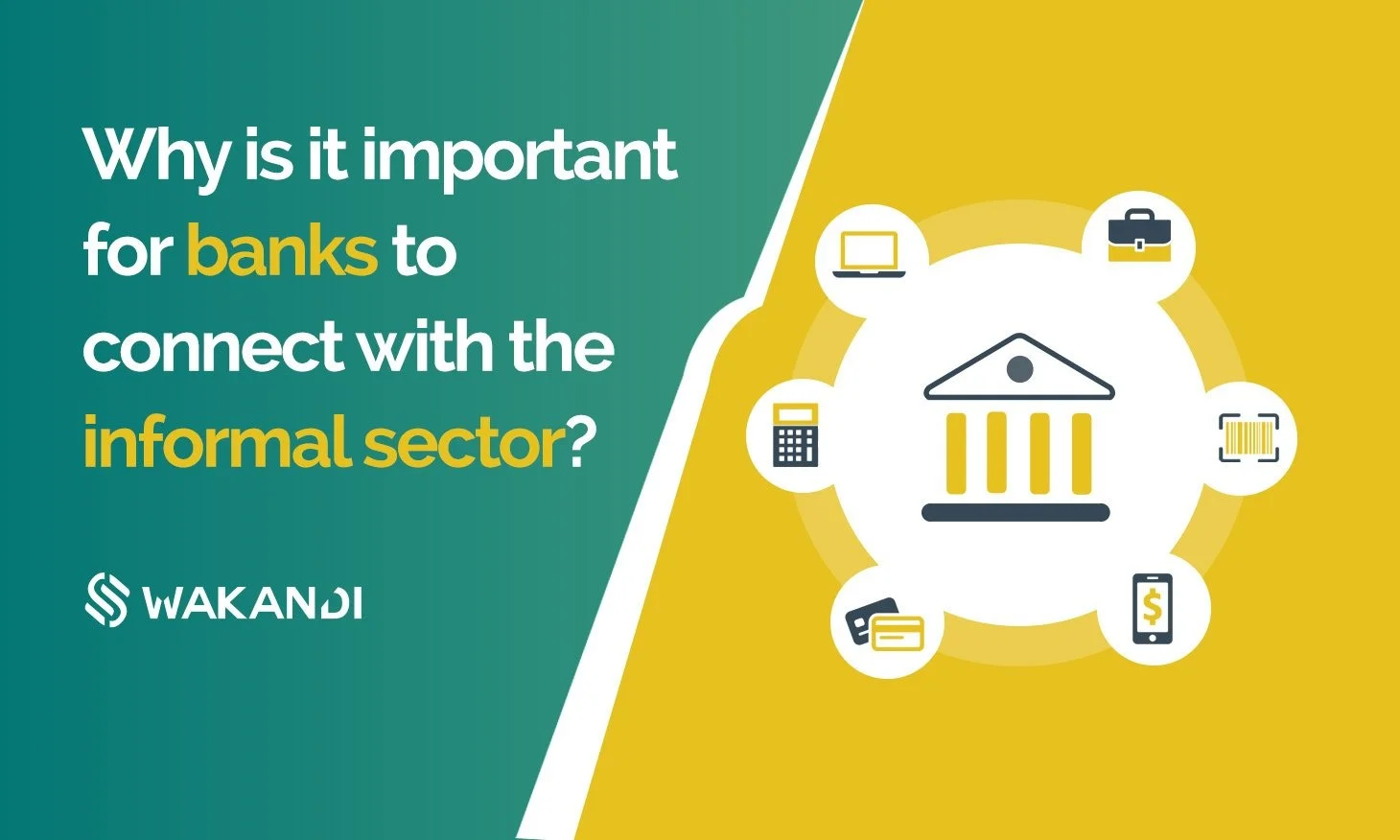Why is it important for banks to connect with the informal sector?

Access to banking services in Africa has improved significantly over the years. Digital transformation of financial services has enabled banks to reach wider audiences in many countries. People can now use their mobile phones to connect to their banks and access their services digitally. However, despite radical advancements and the rise in mobile technologies, the informal sector has majorly remained untouched.
A high rate of population in many countries still remains unbanked. According to MEDICI Global, a massive 370 million people have no access to formal banking services. This number reflects how traditional banks are struggling to reach people across Africa.
The informal sector in Africa: where lie the opportunities
The vibrancy of the informal sector in Africa cannot be unseen. The sector is highly dynamic, spanning a wide range of small and medium-sized businesses, farmers, and self-employed workers. Accounting for 66% of the total jobs, the sector plays a crucial role in employment and economic growth.
With generating a significant chunk of employment and growth opportunities, the sector also plays a critical role in allocating funds to millions of people. They actively rely on informal financial groups (IFGs) to keep their savings and avail loans. These are called SACCOS in Tanzania, Stokvels in South Africa and other names in different countries.
Today, millions of people in African countries, including Tanzania, Nigeria and South Africa, rely on informal financial services. They simply join a savings group and meet every month to deposit savings and avail loans when required. Although this makes it simpler and convenient for the members, they face several challenges in record-keeping, cash security, and financial management. That said, financial services in the informal sector are often characterized by traditional practices, unwritten norms, lack of proper recordings and other challenges.
This provides a huge opportunity for banks to connect with the informal sector and build an advanced, informed and financially included society.
How can banks make massive gains?
Banks can help solve many challenges the informal economy face today. While helping people, they can explore wider opportunities that have remained untouched. Let us see how beneficial it would be for banks and other financial institutes to connect with the informal sector.
Tapping into the unserved market
A large section of the population remains unbanked. People often face problems due to high transaction charges, far-off branches, and cumbersome processes when it comes to using banking services. That is why they continue to manage their finances through IFGs. Connecting with the informal sector can help banks tap into the vastly untouched markets and build a massive customer base. Consequently, it will lead to more revenue generation and brand recognition.
Wakandi CAMS is a financial system that can help millions of people in Africa connect to the formal way of finance by enabling SACCOs and MFIs go digitial. Reach out to us to know more about the system.
Massive data sets to explore and utilize
Connecting with the informal sector can help banks analyze their payment and savings habits, loan requirements, insurances, and a lot more. Using that, banks can build huge data sets which they can utilize to offer personalized services to users. They can also provide various discounts and offers which they are likely to say yes. This may lead to better fulfilment of user needs and higher levels of satisfaction.
Help people move from informal to formal
Financial inclusion is an essential and highly discussed topic worldwide. Increasing people’s access to financial services is often recognized as an effective measure to reduce poverty and income inequality. Banks can play a pivotal role in bringing people from the informal economy to the formal economy. This can get substantial benefits to everyone, including the government, banks, and citizens.
It is assumed that the informal sector will continue to contribute massively to the continent’s GDP and employment. With massive digitization changing everything in Africa, there lie great opportunities for banks to connect with the informal sector to reach more customers and build a financially included society.


Comments